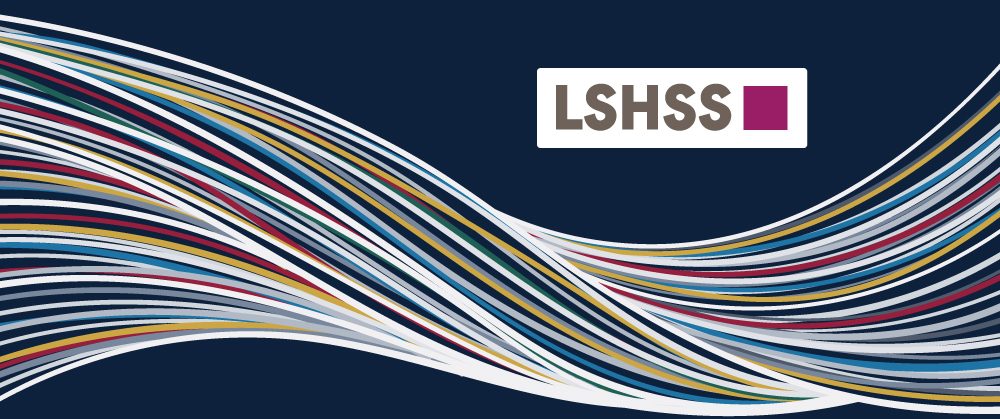For more than 50 years, ASHA has recognized the importance of addressing cultural and linguistic diversity, most recently by joining professionals across the country in assessing their efforts in the areas of diversity, equity, and inclusion. The latest forum in Language, Speech, and Hearing Services in Schools (LSHSS) aims to look both inward on the profession’s past and forward to a brighter future.
In the latest forum in LSHSS, Guest Editors María Rosa Brea-Spahn and Leah Fabiano-Smith asks readers to look at speech, language, and hearing sciences with both “criticality and hope” (Brea-Spahn & Fabiano-Smith, 2023, p. 671). Learn more about the forum below.
A Call For Reflection
Brea-Spahn and Fabiano-Smith open the forum by taking us back to June 2020, a time they refer to as a “threshold moment” (p. 671), and how professionals in the sciences reacted. They discuss the need for a “pause” to reflect on the role of the sciences historically.
Next, Brea-Spahn and Bauler encourage ASHA members to reflect on common ideologies of language, specifically when referring to “normal” language and “deviance.” This topic is revisited later when Nair et al. present a critical analysis of standardized testing in speech and language therapy.
In their article, Soto-Boykin and colleagues shift the focus to the effect of state-level policies on racialized emergent bilinguals. Looking at policies in four states, they found that only one of those four states outlined specific provisions for bilingual education for bilingual children who are suspected of or labeled as having a disability.
An Invitation to Reframe
Two articles suggest that by looking at clinical practice and research critically, we can apply new ideas. First, Privette introduces critical theory and discusses how it can be applied to one’s everyday work as a clinician in speech, language, and hearing sciences.
Elsewhere in the forum, Garivaldo and Fabiano-Smith reexamine and reinterpret previous data on bilingual language acquisition. The authors emphasize the importance of working with a more diverse and representative research team when studying children from a bilingual background.
Reimagining New Applications
After examining the past and reframing the present, four articles allow readers to look ahead toward new applications stemming from the forum’s lessons. Allison-Burbank et al. present a unique tutorial on how Diné (Navajo) epistemologies—which are based on collective learning, oral storytelling, and land-based experiences—can be incorporated into literacy instruction.
When helping nonspeaking bilingual children communicate, Padía writes that semi-structured interviews with families can help care partners and educators work together to develop a communication system. Conversations between clinicians and care partners are also a focus for Esquilín Nieves and Danzak, who showcased the perspectives of two Latina mothers with children on the autism spectrum.
The forum ends with an article by Saia, discussing disability as a social construct. Saia provides concrete suggestions for embracing disability culture in schools, highlighting a path for individual and professional change to lead to systemic change.
Critical Analysis and Radical Hope
Brea-Spahn and Fabiano-Smith write, “Taken together, these works are a critique, an application of new frames, and a call to action” (Brea-Spahn & Fabiano-Smith, 2023, p. 673). We hope the forum serves as a hopeful resource, focused on the role you can play in your everyday work.
We’d like to thank Drs. Brea-Spahn and Fabiano-Smith and all of the authors and reviewers who contributed to this forum. You can hear the guest editors talk about the forum in their own words under the “Related Videos” heading. You can read the entire forum in the latest issue of LSHSS, or explore the individual articles below.
Related Videos
Explore the Forum
Allison-Burbank, J. D., Conn, A., & Vandever, D. (2023). Interpreting Diné epistemologies and decolonization to improve language and literacy instruction for Diné children. Language, Speech, and Hearing Services in Schools, 54(3), 707–715. https://doi.org/10.1044/2023_LSHSS-22-00147
Brea-Spahn, M. R., & Bauler, C. V. (2023). Where do you anchor your beliefs? An invitation to interrogate dominant ideologies of language and languaging in speech-language pathology. Language, Speech, and Hearing Services in Schools, 54(3), 675–687. https://doi.org/10.1044/2023_LSHSS-22-00135
Brea-Spahn, M. R., & Fabiano-Smith, L. (2023). Reflect, reframe, and reimagine theory and practice in speech, language, and hearing sciences: Introduction to the forum. Language, Speech, and Hearing Services in Schools, 54(3), 671–674. https://doi.org/10.1044/2023_LSHSS-23-00048
Esquilín Nieves, A. A., & Danzak, R. L. (2023). Examining perspectives of Latina mothers and speech-language pathologists through dyadic interviews: Implications for Latine children on the autism spectrum. Language, Speech, and Hearing Services in Schools, 54(3), 746–764. https://doi.org/10.1044/2023_LSHSS-22-00140
Garivaldo, B., & Fabiano-Smith, L. (2023). Reframing bilingual acquisition and theory: An insider perspective through a translanguaging lens. Language, Speech, and Hearing Services in Schools, 54(3), 765–780. https://doi.org/10.1044/2023_LSHSS-22-00136
Nair, V. K. K., Farah, W., & Cushing, I. (2023). A critical analysis of standardized testing in speech and language therapy. Language, Speech, and Hearing Services in Schools, 54(3), 781–793. https://doi.org/10.1044/2023_LSHSS-22-00141
Padía, L. (2023). Toward a model of reciprocal carryover: Learning from communication systems of families of nonspeaking bilingual children. Language, Speech, and Hearing Services in Schools, 54(3), 716–728. https://doi.org/10.1044/2023_LSHSS-22-00145
Privette, C. (2023). Embracing theory as liberatory practice: Journeying toward a critical praxis of speech, language, and hearing. Language, Speech, and Hearing Services in Schools, 54(3), 688–706. https://doi.org/10.1044/2023_LSHSS-22-00134
Saia, T. (2023). Embracing disability culture in schools. Language, Speech, and Hearing Services in Schools, 54(3), 794–798. https://doi.org/10.1044/2023_LSHSS-22-00142
Soto-Boykin, X., Brea-Spahn, M. R., Perez, S., & McKenna, M. (2023). A critical analysis of state-level policies impacting racialized emergent bilinguals suspected or labeled as dis/abled. Language, Speech, and Hearing Services in Schools, 54(3), 729–745. https://doi.org/10.1044/2023_LSHSS-22-00137







